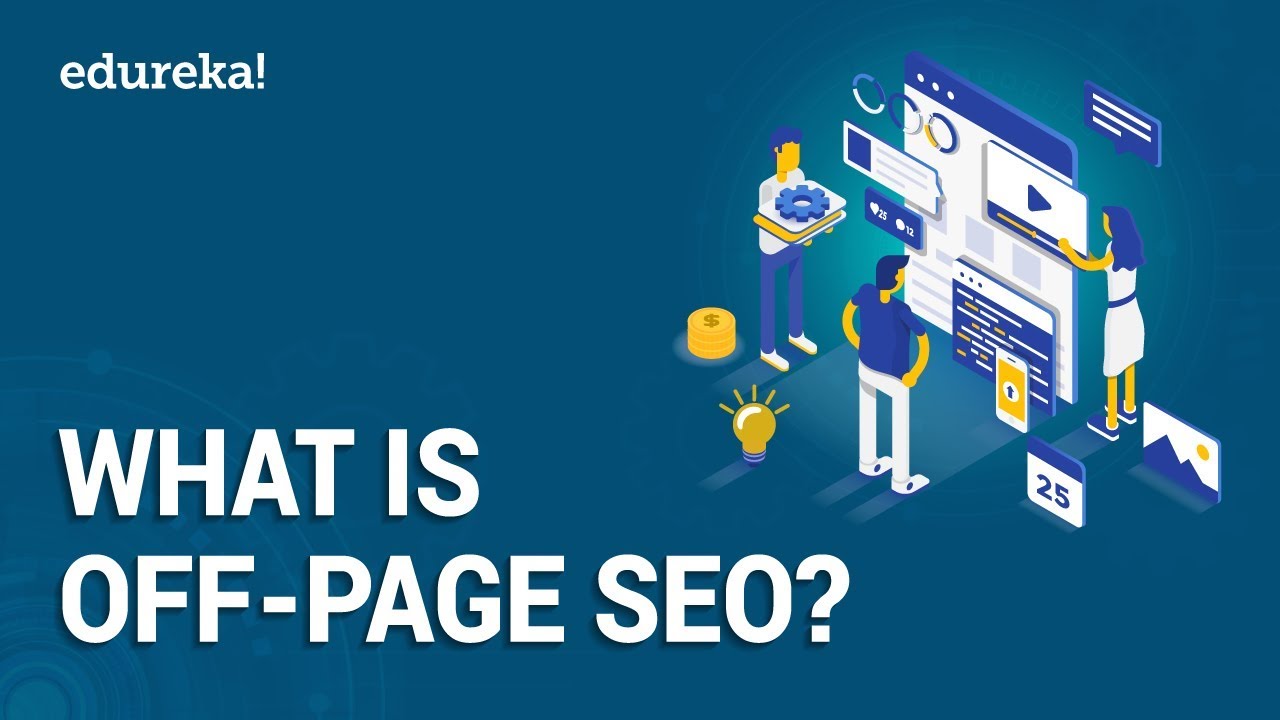Don't have a huge marketing budget? Can't pay for an SEOcompany? It’s possible to do SEOon your own. Search engine optimization(SEO) is a valuable marketing tool that brings potential customers to your website through organic traffic.
SEO is a must, especially for people who run small businesses or e-commerce sites. Don't worry if you don't have a huge marketing budget to hire SEO experts. There are plenty of simple SEO tricks you can use and easy-to-use tools to help you.
Once you know the basics of SEO, you can decide if you want to hire a professional SEO person to take your optimization to the next level.
What Is SEO?
Don't worry, it won't take long. SEO means "search engineoptimization." Think of it as doing a lot of different things on and off your site that will help search engines find it.
These steps can be simple, like researching keywords and using them in your content, or more complicated, like making an XML sitemap so that search engines know which pages you want to show up in the search results.
The Benefits Of SEO

What Is Seo And Its Benefits
Even though it can be hard to learn SEO on your own, the benefits are worth it:
- Your website gets good traffic (and more of it)
- Your businesswill show up higher in organic search results
- More credibility and trust in your business(a higher SERPranking indicates that Google has deemed your site trustworthy)
- Chances at every stage of the marketing funnel
- Reached a bigger audience
- Results that can be measured to keep improving SEO
Can I Do SEO For My Website Myself?
Yes, you can do SEO for your website yourself if you understand the basics and are willing to make regular changes to your content and SEO strategy. But many business owners don't have the time or moneyto put into SEO. This is why it can be time-saving to hire professionals to do it.
5 Key Elements To Do SEO On Your Own
On-page
On-page SEO includes things on your site that you can change, like the title tag, meta description, and text and multimedia content that show up in search results.
Keywords
It's important to use keywords! When you write content for your site, whether it's a blog post or the first page of your site, you should use keywords in a natural way. This also includes any title tagsor meta descriptionsyou make.
Keywords help search engines figure out what your page is about. Let's say you run a high-end spa and have a blog on your website where you talk about treatments, products, and questions that people often ask.
If you're writing about how often people should get facials and you want to show up in the search results for that topic, you should use the phrase "how often you should get facials" and any related keywords throughout the content and in any major headings where it makes sense.
It's not as hard as it might seem to look for keywords. There are many kinds of SEO software out there that can help you find keywords for your content and tell you how hard it is to rank for those keywords.
You can also look at related keyword searches on Google or pay attention to what Google suggests as you type. That's pretty cool, huh?
Off-page

What is Off-Page SEO | Off-Page SEO Techniques | SEO Tutorial | Digital Marketing Training | Edureka
Getting people to link to your content is the next piece of the puzzle. Links from trustworthy sites other than your own make your site look great to search engines and give you a much-needed boost in the rankings.
But it's not easy to get links.
Don't buy links.
That will get you punished in the SERPs, and all the hard work you've put into your site's SEO will be for nothing. Getting other sites to link to yours takes time and work.
First, you have to make great contentthat people will want to share. You're on the right track if you write informative blog posts or make really cool videos. Take some time to look around the Internet for content ideas that people want.
- Use Google Trendsto find out what's popular.
- Google Trends homepage
Read some of your competitors' content, if they have any, and see what people are talking about on social mediaand in forums like Quora and Reddit. A good start is also to share your content on social media. The more people who see your site, the more likely it is that they will link to it.
Email outreach is another way to get links to your site. Look up people who work in your field. There might be a trade magazine that would be interested in a piece you wrote, or a blogger who would like to share your infographic with their readers.
Local SEO

How to Do Local SEO: Complete A-Z Tutorial
Also, don't forget about SEO in your area. If your business has a physical location or you want people in your service area to find you, you should definitely use local SEO so that people in your area can find you when they're looking for something you sell.
If you've ever searched for something like "restaurants near me," you've seen the results of other businesses' efforts to reach people in the area. The box with all the information about a business is called the "local SEO 3-pack."
When you click on the results, you get more information about the business and see other businesses that match your search.
To get started with local SEO, you should make a Google My Business profile for your business and keep it up to date with your contact information, hours, location, and anything else people need to know.
Taking this first step can make a big difference in how well people know about your business in the area.
Technical SEO
Technical SEOis another part. This involves responsive web design, internal links, site security, duplicate content, and a lot of other things, which is why it's helpful to have an SEO web design company on your side.
10 Steps To Do SEO On Your Own

How to Do SEO Yourself: Rank #1 on Google in 2024
Start With Personas
To get more people to visit your website, you need to know who your ideal buyer is and what makes them tick. Why? Because websites are made for people, not for computers.
So find out what their problems are and why they buy, and use that information to make a customer persona. This will help you get the most out of your SEO and website strategy so that your ideal customer can find you online.
Plan Out Your Research On Keywords
Plan out your keyword strategy before you put a lot of content and copy on your website. Keywords are the words or phrases that people in your target audience type into search engines like Google and Bing when they want to buy something or find a solution to a problem.
Search engines like Google find the most relevant websites, blogs, and images to match the user's search and return the most accurate results. Tools like Wordstream, Ubersuggest, and Google's Keyword Planner can give you valuable information about which keywords you should focus on.
Find Gold In The Long Tail
Ranking for the most popular keywords is very effective in a lot of fields. At the same time, it can take a long time and cost a lot of moneyto try to rank for these highly competitive terms.
Spend some time building a strategy around relevant long-tail keywords instead of just focusing on the most popular keywords.
Long tail keywordsare phrases that are longer and more specific. People use them when they are getting close to making a purchase or finding what they are looking for.
Longtail keywords are a key part of a healthy growth strategy for your website. In fact, they are the main reason people use search engines:
So, if you own a company that makes accounting software, instead of trying to rank for a keyword like "accounting software," which gets about 52 million searches a month and is fought over by national brands, try something more specific like "accounting software for real estate agents."
Study Your Competitors

Study Your Business Competition
Once you have your keyword strategy set up, find out who your top competitors are for each keyword and what they are doing right to get high rankings from search engines. SpyFu is a simple, low-cost tool that can help you find out more about the paid and organic search efforts of your competitors.
Keep in mind that information about your competitors can help you with SEO, but you shouldn't rely on them too much. After all, the people who are most likely to buy from your website are the ones who are most like YOUR ideal buyer.
Blog Consistently
Your site's pages don't change every day. So, since Google is always looking for new content, blogging is a great way to put up fresh, relevant content for search engines to index.
Don't forget that when you blog, you should write about your ideal customer and the problems they face every day. Don't just put a bunch of keywords in your blog posts. Again, the goal is to connect with real people, not search engine robots.
Don't overuse keywords, but do choose a main keyword for your post and use Google Trends to find out what people are searching for. This will give your content the best chance of being found.
For the best optimization of your post, make sure the keyword is in the title, the body copy, the URL, and the meta description.
One more tip for blogging is to use guest blogging as part of your plan. Find the leaders and people with a lot of influence in your field who write good content, and work with them to make content that links back to your site. This is a great way to increase online traffic, shares, and the value of your brand.
Eliminate Duplicate Content
Copying content and putting it on your site is one of the easiest ways to drop in the rankings and get punished by search engines. When the same piece of content is on more than one page, Google will only show one page and push the others down the search rankings.
The goal of Google and other search engines is to push original and relevant content to the top when users search for the terms they are looking for and hide duplicate content and pages that aren't very useful.
So, if you want to add content from another site, you should either link to it and give credit to the original source or use 301 redirectsto send people from duplicate pages to the original pages.
Share And Pass Out
As your content engine gets going, look for ways to get your white papers, guides, blog posts, and other resources out to more people. Outbrain, a platform for distributing content, breaks it down in the following ways:
- Earned Content Distributionis when other people share or publish your content through social media, guest posts, media coverage, or product reviews.
- Owned ContentDistribution: This is when you put your own content on your own websites, like your blog, email newsletter, or social media profiles.
- Paid Content Distribution: As the name suggests, this type of content distribution is done through paid channels, and it often uses a pay-per-click advertising model.
Use Internal Links

How to Use Internal Links to Rank Higher in Google
Internal linking is a great way to improve SEO, especially now that content is more important than ever. A link from one page on a website to another page on the same website is called an internal link.
By putting internal links on your site pages and blog posts, you make them easier to read for your visitors and help Google crawl your site better. Try to go deep when you link within your site.
In other words, don't just link back to your home page. Instead, link to pages that have a lot of information and are related to the topic.
Grow Your Inbound Links
In addition to your internal linking strategy, building external linksis still one of the most important parts of SEO and one of the best ways to boost your search ranking. The goal of inbound linking is to get links to your site from other sites, directories, and forums that have a good domain authority.
For example, if your business is mentioned in Huffington Post, which has a higher pagerank than your website, it will boost your pagerank, and Google and other search engines will reward you by moving you up in search results.
Use SEO-Friendly URLs
If you want to rank high on SERPs, you should make sure your URLs are clean and optimized (search engine results pages). URLs are just the address of a unique page on your website that leads people to your site.
When making URLs for your website, it's important to make sure they are user-friendly, easy to read, and include relevant words (keywords) that match the text on the page.
Let's say someone wants to find red socks for men, so they look on Google. With an easy-to-understand, relevant URL, you can improve your chances of getting to the top of Google's search results and make it more likely that people will buy from you.
People Also Ask
Can I Do SEO For Free?
Yes, you can do SEO on your ownfor free. There are free SEO tools that can help users come up with new keywords and ideas for content. These tools will give you an overall look at the keyword you're looking for.
Is It Worth It To Pay For SEO?
SEO is worth it if you have a good plan and work with someone who knows how toget results. About 93% of online experiences start with a search engine, and SEO leads are much more likely to turn into sales than traditional marketing leads. So, SEO gives you a great return on your money (ROI).
How Much Does SEO Cost For A Small Business?
SEO usually costs between $750 and $2,000 per month for small businesses, or between $5,000 and $30,000 for one-time projects. When small businesses pay for SEO consulting services, they can expect to pay between $80 and $200 per hour.
How Much Is SEO Per Month?
US SEO agencies spend between $100 and $250 an hour on average for SEO. US agencies usually spend between $2,500 and $10,000 per month on SEO. A typical SEO plan costs $2819 a month (per Ahrefs) SEO companies abroad may charge between $10 and $50 an hour.
Conclusion
If you've ever asked yourself, "Can I do SEO on my own?" the answer is yes. You don't have to hire an outside agency to improve your SEO. This guide gives you some basic SEO tips to get you started.
As you can see, learning how to do SEO on your own is a long-term process that can have huge benefits, such as making your quality content more known, visible, and visited. Start with one step of the process, and when you're ready, move on to the next step.
